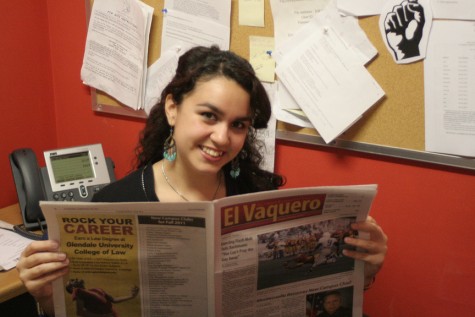On a beautiful sunny day, in November 2007, Ralpha Harold Mack decided to go to the bookstore on his own.
“I went to Barnes & Noble to see if they had a book called ‘The Client,'” said the 37-year-old computer science major, “I couldn’t find it, so I went to the front desk and asked a lady for help.”
The employee stood there, staring at Mack for a good 60 seconds before telling him to wait as she went to look for the manager.
“The manager came back and told me I had to leave,” said Mack, “‘You have to leave because I can’t understand you,’ and she opened the door and pointed me out. She said, ‘Now, go!'”
Mack was born with cerebral palsy.
Cerebral palsy, most commonly referred to as CP, is a chronic condition that affects the body’s movements and muscle coordination. The main cause of CP occurs when the specific areas of the brain pertaining to motor skills, such as the cerebellum, are damaged.
“I was born with the umbilical cord wrapped around my neck,” said Mack. “It was cutting my circulation and caused brain damage.”
Due to his CP, Mack has great difficulty speaking, controlling his voluntary muscle movements, fine motor skills and maintaining his balance. Simple tasks, such as walking, writing and opening doors become difficult and almost impossible.
“People who have two working legs are lucky,” said Mack, “I have to wait for someone to help me. it’s hard. I see people who are able to take stairs or escalators, but instead, they use the elevator, forcing me to wait. Sometimes I’m in a rush to get somewhere, like everyone else.”
When Mack recalled the incident at the Barnes & Noble bookstore, he expressed a feeling of frustration.
“They hurt my feelings,” said Mack. “They didn’t try to listen to me. I have a physical disability, not a mental one.”
Although Mack must use his wheelchair to get around, it is that wheelchair that gives him the independence he craves.
“I am most happy when I go out by myself,” said Mack, “it feels like I don’t have any disability problems.”
Mack loves to have fun and laugh. He enjoys being out on his own, going to movie theaters, watching comedies and action flicks. He is a skilled chess player, but also loves playing blackjack, gin rummy, and dominoes. Those who know Mack could only express admiration when speaking of him.
“With Harold [Mack], it is amazing to see that he can still laugh at both himself and others,” said Aaron Hayden, 20, history major, “Given his situation, many people, including myself, would find it hard to even give a smile, much less a good laugh.”
“I think Harold is an amazing person,” said Professor Laura Matsumoto. “Harold is a genuinely kind and thoughtful man, who is quick to offer his great smile and a friendly ‘hello.’ .Harold works diligently to complete his lab work for CABOT 94 and other classes – spending up to three times or more the amount time most other students would. I know that Harold will excel in whatever career he chooses to pursue. It is a pleasure to work with Harold and to interact with him on a day-to-day basis.”
All that Mack asks of others is compassion.
“People judge from the outside, not the inside,” said Mack, “Sometimes, people look at me strange, but I say to myself, ‘if only you knew I was the same’. I have a mind like everyone else, but I just can’t use my muscles. Please, don’t just look at me -come talk to me.”
It is a fact that all humans have low points in their lives – those times where one can’t see the silver lining in gray storm clouds. Although, at times, Mack has expressed the desire to “give up,” he doesn’t. He finds the strength within himself, a powerful drive, to live his life to the fullest and most importantly, to love his life.
“I love my life because I’m here trying to get an education,” said Mack. “Sometimes I see people who don’t realize what they have: two working legs. And sometimes they don’t do anything.”

